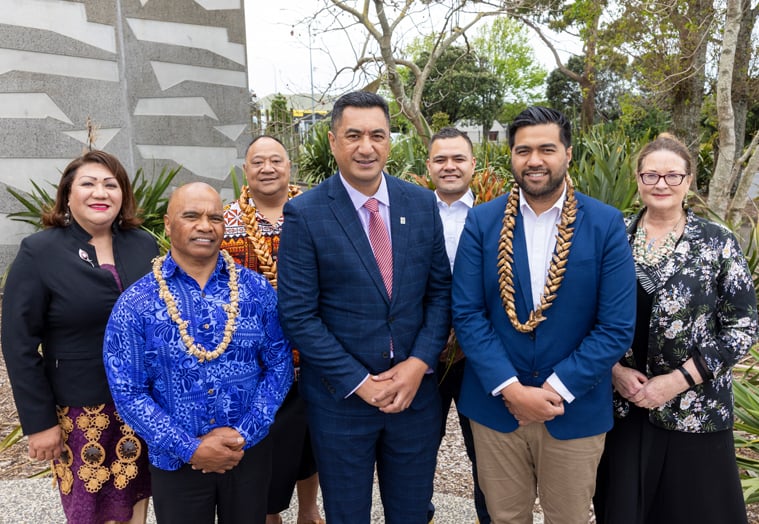
Two local representatives are pushing back against Auckland Council’s proposal to combine boards to cut costs.
Auckland Council is proposing to combine Ōtara-Papatoetoe and Māngere-Ōtāhuhu local boards as part of a city-wide shakeup of the representation model.
Māngere-Ōtāhuhu board chair Tauanu’u Nanai Nick Bakulich says the move would be “detrimental to our communities”.
“Less representation in a growing city does not make sense. We don’t see that as serving our democracy,” Bakulich tells Local Democracy Reporting.
“We’ve got the biggest Pasifika population in Auckland, so if you reduce representation there might be parts of the community that may not feature anymore.”
Currently, Ōtara-Papatoetoe and Māngere-Ōtāhuhu have seven elected local board members each, but existing legislation allows for a maximum of 12 local board members.
Ōtara-Papatoetoe Local Board chair Apulu Reece Autagavaia says the move was likely to remove an existing representative from each board.
“We will end up with less representation for our communities and an enlarged local board,” Autagavaia says.
Combining the two boards would drop representation from 13,280 people per local board member to over 15,490 people per local board member in South Auckland.
The local board reorganisation means losing 10 local board members across Auckland, reducing the total number of local board members in the city from 149 to 139.
While Autagavaia supported the empowered board model, he says it “comes at a cost” with board seats on the chopping block.
“We see it around us. We see that we are underinvested,” Autagavaia says.
“What we’ve got now isn’t enough, but what we have shouldn’t be taken away.”
This year, Auckland Council is up for its six-yearly local board representation review which doesn’t allow for any changes to the number of local boards.
But the reorganisation plan is part of Mayor Wayne Brown’s proposed long-term plan (LTP), along with his empowered boards proposal, which will reduce local boards from 21 to 15 and is planned to come into place in next year’s local Government elections.
Brown previously said staff and financial resources could be better spread across the city if there were fewer local boards.
His LTP proposal states Auckland Council should develop minimum standards for all or most local community services in discussion with local boards, and commit to funding these.
He says local boards should have the power to raise funds, decide on activities and services in their community, and to engage with Auckland Transport.
When asked to comment on reduced representation for the community, Auckland Council governance services manager Rose Leonard responded in a statement that the local board reduction process is at its first stages.
“If we think there is a good reason to have fewer local boards then we will consult with Aucklanders, but we are still at the first stages of this process,” Leonard says.
“We have had early discussions with local boards, community stakeholders and Māori about the process but the Governing Body will need to decide on whether to consult with the public on changes at a meeting on 30 May.”
Leonard says public consultation will take place from June to July and will make a decision in September.













